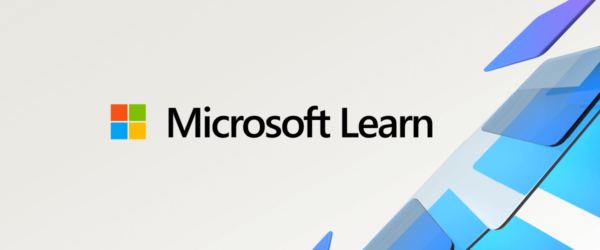The advent of cloud computing has greatly improved data management. The cloud allows companies of all sizes to centrally and conveniently store, manage, and access their data from any internet-connected device. However, as the use of cloud computing continues to expand, the importance of implementing effective cloud security measures has become paramount. Cloud-based systems are increasingly targets for data theft by cybercriminals, who are constantly looking for new ways to break into them.
Cloud security threats are malware attacks, network intrusions, and data breaches. Cloud security detects and responds quickly to these threats to prevent data loss and minimize security incidents. This involves monitoring systems for security incidents, responding to them quickly, and using threat intelligence and other tools to prevent threats. In this piece, we’ll delve into the goals, technology capabilities, best practices, and top vendors of cloud security.

Detailed Objectives Of Cloud Security:
The safety of cloud-based data storage is essential to any modern business. Protecting sensitive information stored in the cloud and making sure the cloud infrastructure is safe and reliable are the main goals of cloud security. The main objectives of cloud security are as follows:
- Confidentiality: Protect sensitive information from unauthorized access or disclosure. Cloud security restricts access to cloud data. Encryption, access control, and other measures protect sensitive data.
- Data Integrity: Cloud data should be accurate and complete. Cloud security prevents data loss and corruption. This includes data backup and recovery, monitoring data access, encrypting, and other security measures to prevent unauthorized changes.
- Maintain Availability: Authorized users can access cloud data when needed. Cloud security ensures authorized users can access cloud data after a security breach or system failure. Implement disaster recovery and business continuity plans, monitor system performance, and use redundancy and other measures to ensure system availability.
- Secure the Cloud Infrastructure: Cloud computing requires hardware, software, and networks. Cloud security protects the cloud infrastructure from attacks and other threats. Secure the infrastructure, implement security controls and monitoring systems, and encrypt sensitive data.
- Compliance with Regulations and Standards: Many organizations must protect sensitive data like personal, financial, and health information. Cloud security ensures that organizations comply with these regulations and standards and have policies and procedures to protect sensitive data.
By meeting these goals, organizations can protect sensitive cloud data, ensure its availability and integrity, and comply with regulations and standards. Organizations can quickly respond to security incidents and minimize security breaches by implementing threat detection and response capabilities.
Technology Capabilities:
Data stored in the cloud is protected by cloud security technology from threats like malware, hacking, and data breaches. Organizations can secure their cloud-based systems using a number of technologies, such as:
1. Encryption:
The transformation of plain text into encrypted text that authorized users can only access is known as encryption. Data in transit and data stored in the cloud can be secured using encryption.
2. Access Control:
The procedure of limiting who has access to private information is referred to as access control. The use of authentication and authorization techniques, such as usernames and passwords, two-factor authentication, and biometric authentication, can be used to achieve this.
3. Network security systems:
These are known as firewalls and regulate incoming and outgoing network traffic in accordance with pre-established security rules. Cloud-based systems can be secured with firewalls against hacker attacks and unauthorized access.
4. IDS/IPS systems:
These are Intrusion Detection and Prevention Systems created to identify and stop intrusions in real time. They can also be used to identify and stop data breaches as well as unauthorized access to cloud-based systems.
Cloud Security Best Practices:
Organizations can follow several best practices for protecting cloud-based systems. Organizations can benefit from following these guidelines because they will be better able to safeguard their data, lessen the likelihood of security incidents, and protect the privacy of their customers and other stakeholders. Key cloud security recommendations include the following:
- Secure data both in transit and at rest – One of the best ways to guard sensitive data in the cloud is to encrypt it both while it is at rest and in transit. Businesses can shield critical information from prying eyes by using data encryption at rest while it is being transmitted.
- Use strong authentication and access control – Strong authentication and access control are crucial to the security of the cloud-based infrastructure. Multi-factor authentication, access privileges based on user roles, and frequent password changes are all methods that can be used.
- Implement network security – Protect cloud-based systems from cyber criminals by enforcing stringent network security measures. This method also includes firewalls and intrusion detection and prevention systems.
- Conduct regular check-ups: Protecting data stored in the cloud requires regular backups. In case of a security incident or data breach, businesses should have a disaster recovery plan, including routine data backups.
- Audit and monitor system access: This allows only authorized users to access cloud-based systems; monitoring regularly and audit system access is essential. With this process, it is necessary to monitor data access and modification activity.
- Employee training – Security in the cloud relies heavily on training employees in best practices for protecting data. The importance of security in protecting data in the cloud cannot be overstated, and businesses should ensure their employees have been trained in the latest security best practices.
- Conduct regular security assessments: It is crucial to perform regular security assessments in order to detect any security flaws in cloud-based systems. Scans for security flaws and penetration tests, as well as routinely reviewing logs and audit trails, are all part of this process.
- Implement identity and access management: Identity and access management (IAM) should be implemented because it is crucial to cloud security. With IAM, businesses are able to restrict access to sensitive data and systems to only those who need it.
- Use security information and event management (SIEM) solutions – Security incidents can be quickly addressed with the help of security information and event management (SIEM) solutions. Organizations can use SIEM solutions to quickly detect security incidents, respond to them, and take preventative measures.
- Employ cloud access security brokers (CASBs) – CASBs are security solutions that give businesses oversight and management of their cloud infrastructure. Companies can safeguard their data and infrastructure with the help of CASBs.
These are some of the most crucial cloud security best practices that businesses can implement to safeguard their cloud-based resources. Organizations can protect their customers’ data by adopting these guidelines and preventing embarrassing security incidents.
Leading Vendors For Cloud Security:
As organizations continue to embrace cloud computing, the need for robust cloud security solutions has become more pressing. In this section, we will explore some of the leading vendors for cloud security, their offerings, and the links to their websites.
1. Microsoft Azure:
Microsoft Azure is another leading cloud platform that offers a range of security services to help organizations protect their data and systems. Some of the security services Azure offers include encryption, access control, and threat protection. Azure also offers security-focused certifications, such as the Microsoft Certified: Azure Security Engineer Associate, to help organizations validate their security skills.
2. Google Cloud Platform (GCP):
GCP is a cloud platform offered by Google that provides a range of security services to help organizations protect their data and systems. Some of the security services offered by GCP include encryption, access control, and security management. GCP also offers security-focused certifications, such as the Google Cloud Certified – Professional Cloud Security Engineer, to help organizations validate their security skills.
3. Amazon Web Services (AWS):
AWS is a leader in the cloud computing sector and provides a variety of security services to aid businesses in safeguarding their data and systems. AWS’s security services include identity and access management, data encryption, and network security. AWS also offers security-focused certifications, such as the AWS Certified Security – Specialty, to help organizations validate their security skills.
4. IBM Cloud:
IBM Cloud is a cloud platform offered by IBM that provides a range of security services to assist organizations in protecting their data and systems. Some of the security services IBM Cloud provides include identity and access management, data encryption, and network security. IBM Cloud also offers security-focused certifications, such as the IBM Certified Solution Advisor – Cloud Security, to help organizations validate their security skills.
5. Oracle Cloud:
Oracle Cloud is a cloud platform offered by Oracle that provides a range of security services to enable organizations to protect their data and systems. Some of the security services offered by Oracle Cloud include identity and access management, data encryption, and security management. Oracle Cloud also offers security-focused certifications, such as the Oracle Cloud Infrastructure 2020 Certified Architect Associate, to help organizations validate their security skills.
Conclusion:
Data stored in the cloud must be protected from intrusion, theft, and tampering, so cloud security is crucial to cloud computing. A company’s data in the cloud can be safer, and the risk of security breaches lower if it implements the appropriate security technologies and practices. The best cloud security vendors offer a wide selection of services and tools to protect businesses’ cloud-based infrastructures. Organizations can guarantee their cloud-based systems’ safety and data privacy by teaming up with a trusted cloud security vendor. By partnering with a reputable cloud security vendor, businesses can increase the security of their systems and data by adequately protecting them. These are but a few instances of the leading vendors for cloud security. When choosing a vendor, it’s essential to consider your organization’s specific security needs and thoroughly evaluate each vendor’s security offerings
BRAMS Partnership with the leader
With its expertise, BRAMS offers you market-leading cloud solutions billed per use. With BRAMS, now you can unleash your full potential and focus on what matters most: Your activities. Thanks to its partnerships and collaboration with the biggest global cloud pioneers: Microsoft, Amazon Web Services, IBM Cloud and Google Cloud, Brams has become a multi-industry focus, to support companies of different sectors and sizes to move to the Cloud for more than two decades of expertise.
Get in touch with an Expert ..
Source: https://informationsecuritybuzz.com/cloud-security-capability-guide/



